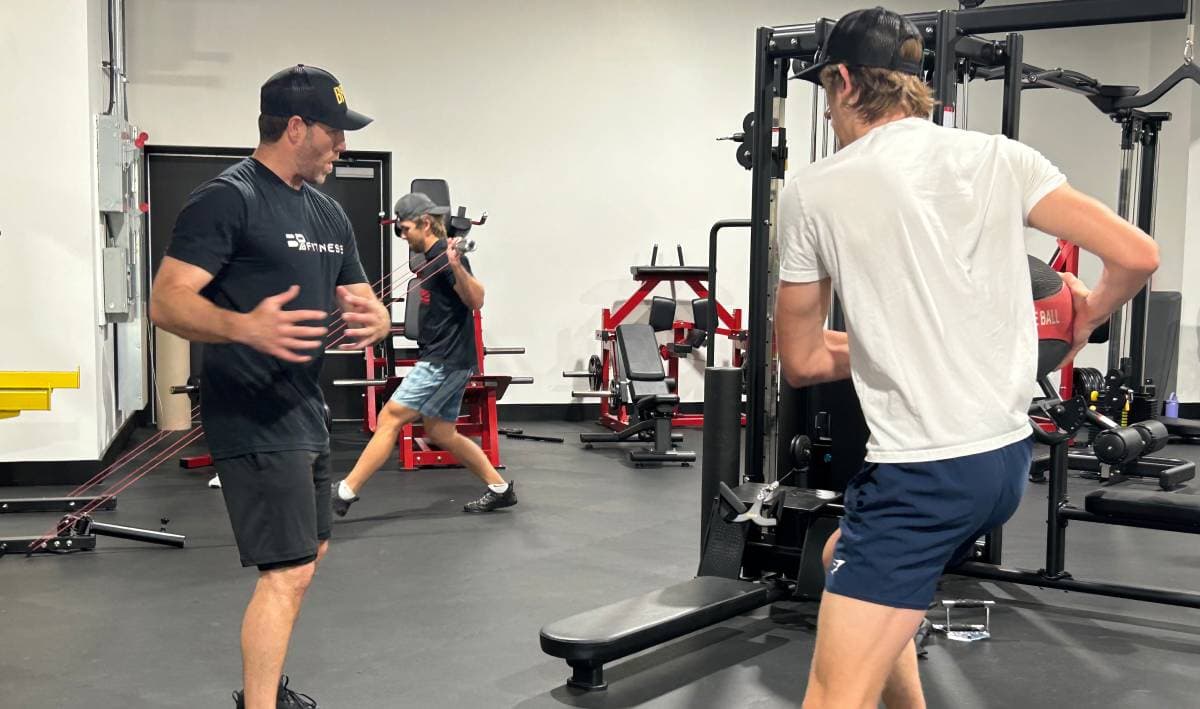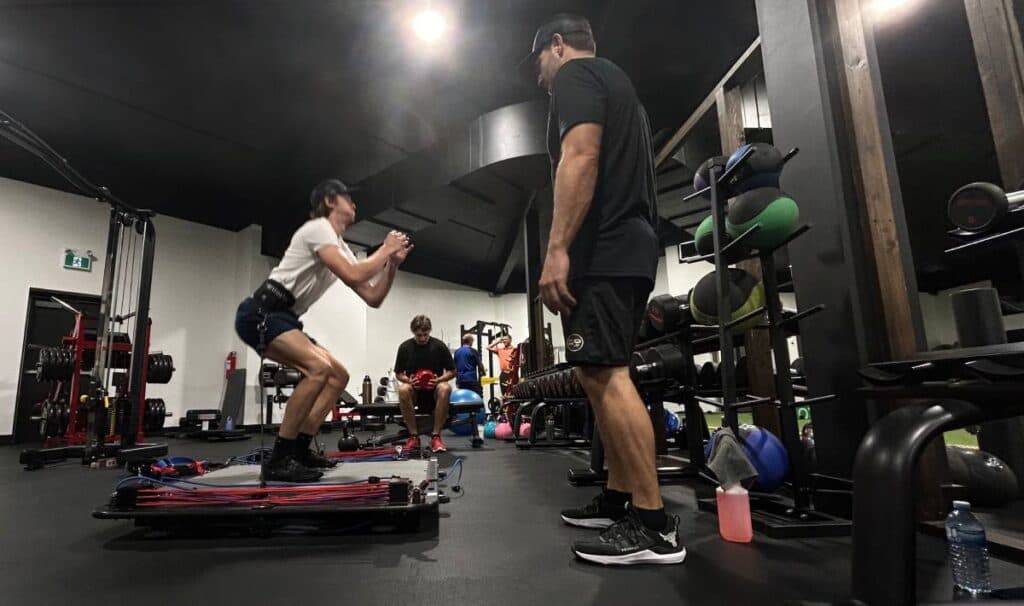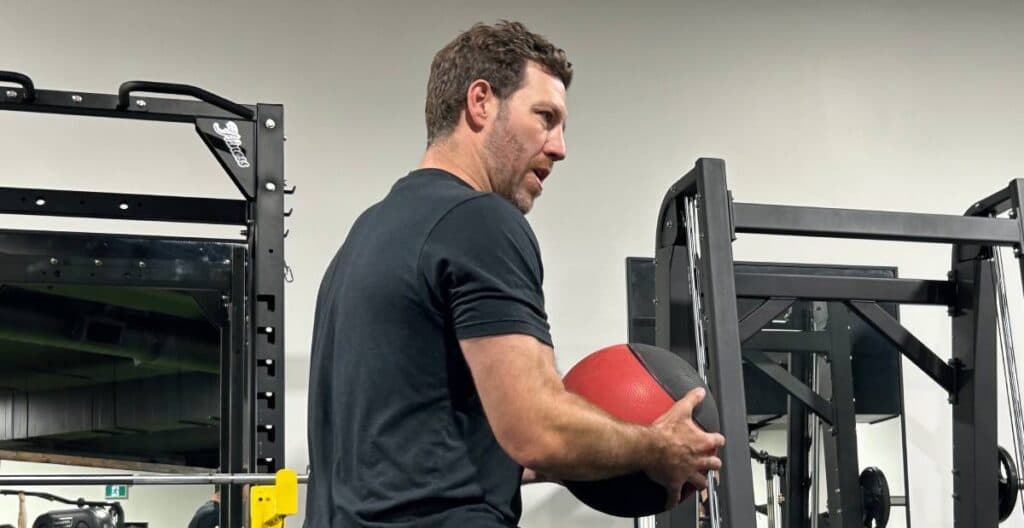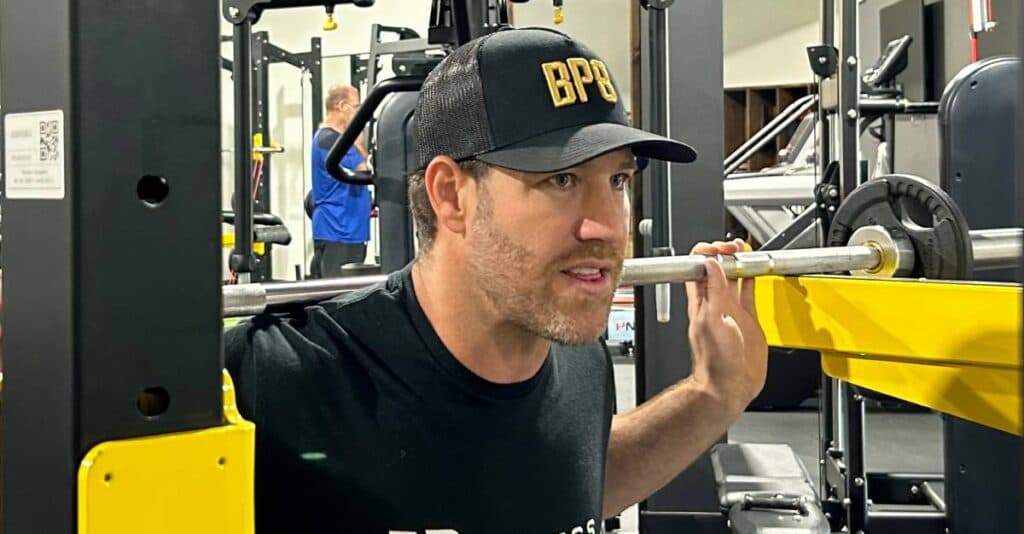Former NHLer Brandon Prust talks hockey ahead of his first season coaching the GOJHL’s London Nationals

On a humid Friday in London, Ont., Brandon Prust maps out the workouts he’ll put his players through that afternoon.
Here at BP8 Fitness, a gym and fitness center Prust has owned and operated for nearly a year in the northwest end of London, it’s one of the last training sessions for this group before the young men start their respective seasons of hockey. Some of these athletes come from the Ontario Hockey League or the Junior B level, while others will be entering their Under-16 AAA campaigns, preparing to take the next step in their journey within the game. Regardless of age, they all carry the hope of one day playing in the same league in which Prust spent 10 seasons.
After retiring ahead of the 2017-18 campaign, the 40-year-old Prust now lives in London, the same place he won the 2005 Memorial Cup with the OHL’s London Knights. While most of his time has been spent getting BP8 Fitness off the ground, the veteran of nearly 500 NHL games has accepted a new challenge, starting his coaching career with the same team he first played junior hockey in 2002-03, the GOJHL Jr. B London Nationals.
Just weeks before the season begins, Prust sat down with Daily Faceoff to talk about life after the NHL, modern fitness in hockey, how the game has evolved, his upcoming season with the Nationals and what the future holds for one of the sport’s toughest players.
Note: This interview has been edited for length and clarity.
Daily Faceoff: Every professional athlete has to determine what they’ll do after they’re done playing. What led you to opening your gym?
Brandon Prust: I always thought I would train athletes because of how I approached the game. Every offseason, I would try to be among the top five players when it came to being in the best shape. I felt like I had a unique way of training that I wanted to pass on to the next generation of athletes.

Daily Faceoff: When you say unique type of training, could you elaborate on that?
Brandon Prust: For me, everything was a one-stop shop. Nowadays, I know guys have a skating coach, a trainer, a conditioning coach, and it’s a bit of a tornado. For me, I wanted to provide athletes with all the tools: on-ice and off-ice, nutrition, sports psychology, everything to get you ready for a season.
Daily Faceoff: You mentioned that you wanted to pass on some of your knowledge to the next generation of athletes, but has there been any major differences in how players train today compared to when you were still developing?
Brandon Prust: I think quickness is a big one. We’re still doing a lot of plyometric training for your explosiveness, which we did when I played, but the focus is definitely on speed. I’m a meat-and-potatoes kind of guy, so I still want these guys doing their box jumps, squats, bench press, deadlifts. You can blend the old and new schools.
Daily Faceoff: Did you ever think about actually getting behind the bench and coaching?
Brandon Prust: I knew it was something I was interested in, and I had spent some time shadowing the Knights and the Hunter family (General Manager Mark, Head Coach Dale and current Assistant Coach Dylan). When the Nationals asked me to coach, I knew I wanted to take the job.
Daily Faceoff: Let’s go back to your playing days. Can you tell us about your minor hockey career and how you wound up playing with the Nationals?
Brandon Prust: I grew up playing in London’s Forest City Hockey league for the Southwest Bruins. I actually didn’t play AAA until the 2000-01 season with the U18 Jr. Knights. The season before I was cut, so I played AA. The next year, I played well enough with the U18 team that the Nationals recruited me.
Daily Faceoff: During your one full season in Jr. B, you scored 16 goals and 51 points in 52 games, finishing third in scoring and only recording 38 penalty minutes. What were you trying to accomplish during that year?
Brandon Prust: I was just trying to play my game. I was always a skill guy, and I never fought. I hit hard, but I never fought. It wasn’t until I got to the OHL that I realized I needed to separate myself from everybody else.
Daily Faceoff: And that’s when you started to fight?
Brandon Prust: Yeah, I knew I was going to have to stick up for myself, so I started learning how to fight. Chris Bain was one of the tough guys on the Knights at that time, and I started trying to fight him in training camp. I ended up being pretty good at it.
Daily Faceoff: Can you go into further detail on that? Because we always hear athletes explain the natural competitive element of the game, scoring a goal and winning, but then they describe that extra level of wanting to finish every hit or wanting to go out and fight someone. Is it something that’s natural or is it out of necessity?
Brandon Prust: I think it’s definitely something that comes naturally. There’s stuff you can’t teach. Some guys come up to me and ask what they need to work on, and I tell them they might need to be an absolute terror to play against. I knew when I was playing against a defenseman that could hit hard and get in your face, I was like, “I have to play this guy every shift.”
I tell my guys, “You need to want that puck more than anybody.” That’s why when it comes down to playoffs, nearly all the skill goes out the window, and everybody gets a different mindset. That’s the competitive edge you see in the best athletes, and why people make it as far as they do. You can’t teach it.
Daily Faceoff: When you’re settled in for the night and watching a few games, what stands out to you about the game today compared to when you played? Is there anything you do or don’t like?

Brandon Prust: Like I said with training, speed is everything, and it feels like the game is more wide open. The players are very skilled, every team seems to have four lines of fast, skilled guys. The gritty, old school hockey is kind of gone, and I think everybody knew that was going to happen. It feels like it’s a young man’s game, so all these older guys have to work extra hard just to keep up and outsmart the younger guys.
I think (current Philadelphia Flyers head coach) John Tortorella even said there’s a lot of dumb hockey right now. I think back in the day, everybody would just watch hockey. I remember I would just sit at home and watch a whole hockey game from start to finish, five times a week. I think that’s why me and other guys had good hockey sense, because I just loved watching the game, and I don’t know how many are watching nowadays.
Daily Faceoff: Now that you’re going to be behind the bench for the first time, what are some of the lessons you’ve taken from different coaches over the years?
Brandon Prust: One thing for me is being honest with my players. That’s one thing I loved about Tortorella, he told you how it was. It didn’t matter how much money or term you signed for, they were up front with you. That’s what I want to do with my guys.
At the start of the season, you’re going to teach everyone your structure, power play, forecheck, backcheck, all that stuff. But as the season goes on, it’s just continuing to see what guys need, and making sure they’re staying focused. Every team and every player goes through mid-season funks, so you want to get them out of that as quickly as possible. But you want guys to have fun. You don’t want to make the rink a miserable place, you want guys to want to come there.
Daily Faceoff: You were coached by Dale and Mark Hunter in the OHL, and you’ve spent time with them in London since you’ve retired. Are there any specific things you’ve learned from them that you want to carry into your first season behind the bench?
Brandon Prust: One thing about the Hunters is their work ethic, and the reason they’re good every year is because they spend time on game preparation. I didn’t realize how much preparation went into it from a coach’s point of view until I spent time with them.

That feeds into the players: when the players see the coaches formulate a game plan and really drill it again and again into them, whether it’s practice or watching game tape, you know they’re working hard and putting their heart and soul into it, it’s going to really trickle down and go right into the players.
Daily Faceoff: How do you envision your long-term future in hockey?
Brandon Prust: I love the gym and training athletes, it’s something I’d like to continue doing every summer, but I’m going to be fully immersed in coaching this season. Like I said, I always wanted to give back to the younger generation of athletes and help them prepare for what’s ahead. I’ve been through it all: the ups, the downs, so it’s time to pass down that knowledge I’ve gained in the last 25, 30 years of my life.
The sky’s the limit, I’m just excited to see how far we can go.
More from Hunter Crowther
- Flames’ Weegar given game misconduct after banging stick on glass
- Sceptres’ Allie Munroe leaves game against Charge with lower-body injury
- Predators’ Steven Stamkos plays in 1,200th NHL game
- What Christmas gifts do NHL teams need heading into the second half of the season?
- The Sabres have long-term hope amidst winning streak